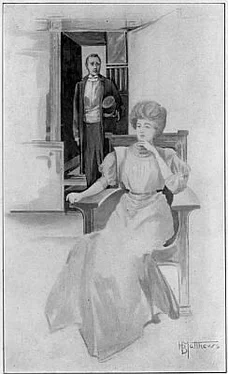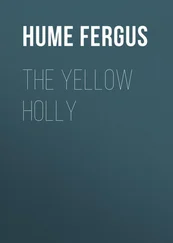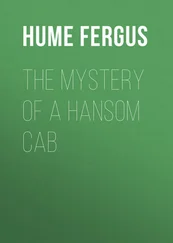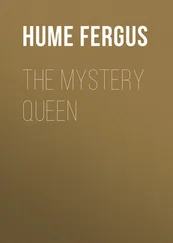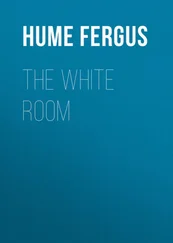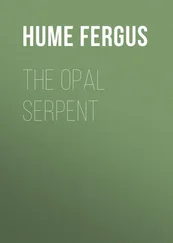Fergus Hume - The Silent House
Здесь есть возможность читать онлайн «Fergus Hume - The Silent House» весь текст электронной книги совершенно бесплатно (целиком полную версию без сокращений). В некоторых случаях можно слушать аудио, скачать через торрент в формате fb2 и присутствует краткое содержание. Год выпуска: 2006, Жанр: Классический детектив, на английском языке. Описание произведения, (предисловие) а так же отзывы посетителей доступны на портале библиотеки ЛибКат.
- Название:The Silent House
- Автор:
- Жанр:
- Год:2006
- ISBN:нет данных
- Рейтинг книги:4 / 5. Голосов: 1
-
Избранное:Добавить в избранное
- Отзывы:
-
Ваша оценка:
- 80
- 1
- 2
- 3
- 4
- 5
The Silent House: краткое содержание, описание и аннотация
Предлагаем к чтению аннотацию, описание, краткое содержание или предисловие (зависит от того, что написал сам автор книги «The Silent House»). Если вы не нашли необходимую информацию о книге — напишите в комментариях, мы постараемся отыскать её.
The Silent House — читать онлайн бесплатно полную книгу (весь текст) целиком
Ниже представлен текст книги, разбитый по страницам. Система сохранения места последней прочитанной страницы, позволяет с удобством читать онлайн бесплатно книгу «The Silent House», без необходимости каждый раз заново искать на чём Вы остановились. Поставьте закладку, и сможете в любой момент перейти на страницу, на которой закончили чтение.
Интервал:
Закладка:
THE SILENT HOUSE
BY
FERGUS HUME
 I have ample time at my command, and I shall only be too happy to place it and myself at your service
I have ample time at my command, and I shall only be too happy to place it and myself at your service
THE SILENT HOUSE
CHAPTER I
THE TENANT OF THE SILENT HOUSE
Lucian Denzil was a briefless barrister, who so far departed from the traditions of his brethren of the long robe as not to dwell within the purlieus of the Temple. For certain private reasons, not unconnected with economy, he occupied rooms in Geneva Square, Pimlico; and, for the purposes of his profession, repaired daily, from ten to four, to Serjeant's Inn, where he shared an office with a friend equally briefless and poor.
This state of things sounds hardly enviable, but Lucian, being young and independent to the extent of £300 a year, was not dissatisfied with his position. As his age was only twenty-five, there was ample time, he thought, to succeed in his profession; and, pending that desirable consummation, he cultivated the muses on a little oatmeal, after the fashion of his kind. There have been lives less happily circumstanced.
Geneva Square was a kind of backwater of the great river of town life which swept past its entrance with speed and clamour without disturbing the peace within. One long, narrow street led from a roaring thoroughfare into a silent quadrangle of tall grey houses, occupied by lodging-house keepers, city clerks and two or three artists, who represented the Bohemian element of the place. In the centre there was an oasis of green lawn, surrounded by rusty iron railings the height of a man, dotted with elms of considerable age, and streaked with narrow paths of yellow gravel.
The surrounding houses represented an eminently respectable appearance, with their immaculately clean steps, white-curtained windows, and neat boxes of flowers. The windows glittered like diamonds, the door-knobs and plates shone with a yellow lustre, and there were no sticks, or straws, or waste paper lying about to mar the tidy look of the square.
With one exception, Geneva Square was a pattern of all that was desirable in the way of cleanliness and order. One might hope to find such a haven in some somnolent cathedral town, but scarcely in the grimy, smoky, restless metropolis of London.
The exception to the notable spotlessness of the neighborhood was No. 13, a house in the centre of the side opposite to the entrance. Its windows were dusty, and without blinds or curtains, there were no flower-boxes on the ledges, the steps lacked whitewash, and the iron railings looked rusty for want of paint. Stray straws and scraps of paper found their way down the area, where the cracked pavement was damp with green slime. Such beggars as occasionally wandered into the square, to the scandal of its inhabitants, camped on the doorstep; and the very door itself presented a battered, dissolute appearance.
Yet, for all its ill looks and disreputable suggestions, those who dwelt in Geneva Square would not have seen it furbished up and occupied for any money. They spoke about it in whispers, with ostentatious tremblings, and daunted looks, for No. 13 was supposed to be haunted, and had been empty for over twenty years. By reason of its legend, its loneliness and grim appearance, it was known as the Silent House, and formed quite a feature of the place. Murder had been done long ago in one of its empty, dusty rooms, and it was since then that the victim walked. Lights, said the ghost-seers, had been seen flitting from window to window, groans were sometimes heard, and the apparition of a little old woman in brocaded silk and high-heeled shoes appeared on occasions. Hence the Silent House bore an uncanny reputation.
How much truth there was in these stories it is impossible to say; but sure enough, in spite of a low rental, no tenant would take No. 13 and face its ghostly terrors. House and apparition and legend had become quite a tradition, when the whole fantasy was ended in the summer of '95 by the unexpected occupation of the mansion. Mr. Mark Berwin, a gentleman of mature age, who came from nobody knew where, rented No. 13, and established himself therein to lead a strange and lonely life.
At first, the gossips, strong in ghostly tradition, declared that the new tenant would not remain a week in the house; but as the week extended into six months, and Mr. Berwin showed no signs of leaving, they left off speaking of the ghost and took to discussing the man himself. In a short space of time quite a collection of stories were told about the newcomer and his strange ways.
Lucian heard many of these tales from his landlady. How Mr. Berwin lived all alone in the Silent House without servant or companion; how he spoke to none, and admitted no one into the mansion; how he appeared to have plenty of money, and was frequently seen coming home more or less intoxicated; and how Mrs. Kebby, the deaf charwoman who cleaned out Mr. Berwin's rooms, declined to sleep in the house because she considered that there was something wrong about her employer.
To such gossip Denzil paid little attention, until his skein of life became unexpectedly entangled with that of the strange gentleman. The manner of their meeting was unforeseen and peculiar.
One foggy November night, Lucian, returning from the theatre, shortly after eleven o'clock, dismissed his hansom at the entrance to the square and walked thereinto through the thick mist, trusting to find his way home by reason of two years' familiarity with the precincts. As it was impossible to see even the glare of the near gas lamp in the murky air, Lucian felt his way cautiously along the railings. The square was filled with fog, dense to the eye and cold to the feel, so that Lucian shivered with the chill, in spite of the fur coat over his evening clothes.
As he edged gingerly along, and thought longingly of the fire and supper awaiting him in his comfortable rooms, he was startled by hearing a deep, rich voice boom out almost at his feet. To make the phenomenon still more remarkable, the voice shaped itself into certain well-known words of Shakespeare:
"Oh!" boomed this vox et præterea nihil in rather husky tones, "Oh! that a man should put an enemy in his mouth to steal away his brains!" And then through the mist and darkness came the unmistakable sound of sobs.
"God bless me!" cried Lucian, leaping back, with shaken nerves. "Who is this? Who are you?"
"A lost soul!" wailed the deep voice, "which God will not bless!" And then came the sobbing again.
It made Denzil's blood run cold to hear this unseen creature weeping in the gloom. Moving cautiously in the direction of the sound, he stumbled against a man with his folded arms resting on the railings, and his face bent down on his arms. He made no attempt to turn when Lucian touched him, but with downcast head continued to weep and moan in a very frenzy of self-pity.
"Here!" said the young barrister, shaking the stranger by the shoulder, "what is the matter with you?"
"Drink!" stuttered the man, suddenly turning with a dramatic gesture. "I am an object lesson to teetotalers; a warning to topers; a modern helot made shameful to disgust youth with vice."
"You had better go home, sir," said Lucian sharply.
"I can't find home. It is somewhere hereabout, but where, I don't know."
"You are in Geneva Square," said Denzil, trying to sharpen the dulled wits of the man.
"I wish I was in No. 13 of it," sighed the stranger. "Where the deuce is No. 13? Not in this Cloudcuckooland, anyhow."
"Oh!" cried Lucian, taking the man's arm. "Come with me. I'll lead you home, Mr. Berwin."
Читать дальшеИнтервал:
Закладка:
Похожие книги на «The Silent House»
Представляем Вашему вниманию похожие книги на «The Silent House» списком для выбора. Мы отобрали схожую по названию и смыслу литературу в надежде предоставить читателям больше вариантов отыскать новые, интересные, ещё непрочитанные произведения.
Обсуждение, отзывы о книге «The Silent House» и просто собственные мнения читателей. Оставьте ваши комментарии, напишите, что Вы думаете о произведении, его смысле или главных героях. Укажите что конкретно понравилось, а что нет, и почему Вы так считаете.
